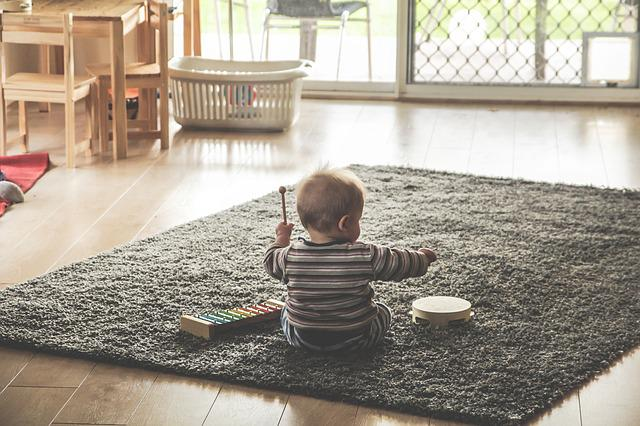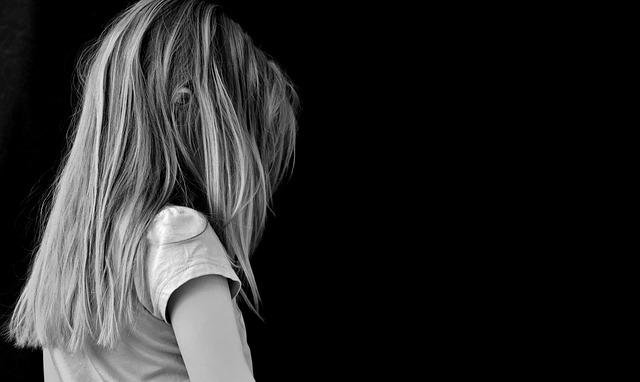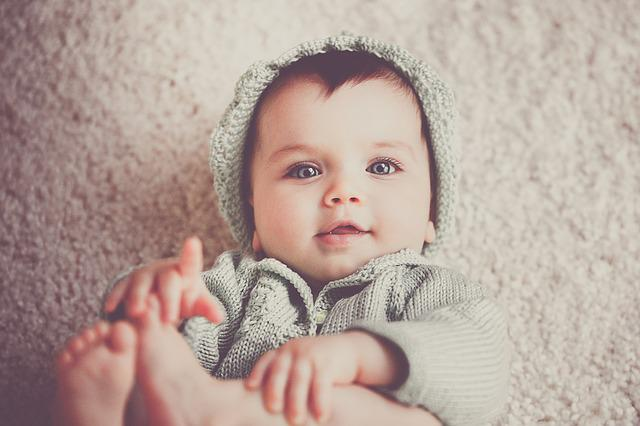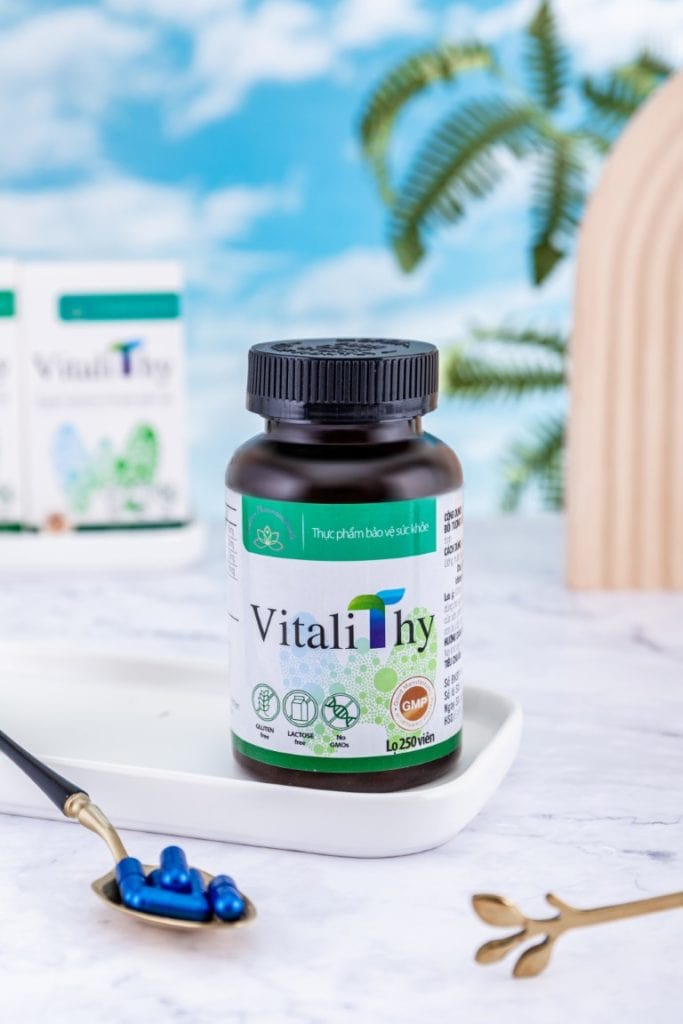My name is Lauren – a single mom of a 10-year daughter. Last month, I was stressed because of my child’s health. She felt tired and didn’t want to eat too much. However, this situation worsened, and her symptoms became more and more serious. She had brittle hair, lost a lot of them, and gained weight uncontrollably. Therefore, I took her to the hospital to do a test. The doctor said she had a condition called hypothyroidism. This is the first time I heard this term, so I really panicked. Luckily, the doctor gave me detailed instructions on hypothyroidism treatment.

What is hypothyroidism?
Honestly, I had never heard about thyroid disease before. The first time I have known this disease is the date I knew my child had hypothyroidism. The doctor said that hypothyroidism is a common endocrine disorder in which your child’s thyroid gland does not produce enough thyroid hormone. A child with an underactive thyroid may suffer fatigue, weight gain, constipation, slow growth, and other issues. That is the reason why my daughter continuously felt tired and had anorexia for a long time.
A child’s thyroid is a small, butterfly-shaped gland in the front of the neck, just below the thyroid cartilage (Adam’s apple). Hormones produced by the thyroid affect all aspects of your child’s health including heart rate, energy metabolism (how effectively the body uses calories), growth, and development. However, I am relieved that hypothyroidism can be treatable with medication.
Types of hypothyroidism in children
I was more surprised because there are several different types of hypothyroidism. My child is diagnosed with congenital hypothyroidism. Congenital hypothyroidism (CH) occurs when the thyroid gland does not develop or function normally prior to birth. It is a very common problem, affecting about 1 in every 2,500 to 3,000 babies. In the United States, all states test for CH as part of their routine newborn screening process.
Many factors, including your family history, your child’s physical exam, the degree of hypothyroidism in your baby at the time of diagnosis, and the course of treatment over the first two to three years of life, will help your child’s physician determine if the cause is hereditary (runs in your family), and if life-long therapy is required. In my child’s case, she inherited it from her grandfather so she has to do hypothyroidism treatment during her life.
In addition, I would like to share some other types of hypothyroidism in children I found when I look for information about this disease.

Autoimmune hypothyroidism: chronic lymphocytic thyroiditis
Acquired hypothyroidism is most frequently caused by an autoimmune disorder called chronic lymphocytic thyroiditis (CLT). In this disorder your child’s immune system attacks the thyroid gland, leading to damage and decreased function. The disorder was originally described by Japanese physician Hakaru Hashimoto and thus is often referred to by his name: Hashimoto’s thyroiditis.
CLT is more common in girls than in boys and in adolescents more than pre-adolescents. Patients with other forms of autoimmune disease, most commonly insulin-dependent diabetes, are at increased risk of developing CLT. Overall, about 20 to 30 percent of diabetics will develop CLT. Because of this, annual screening for CLT is a routine part of diabetic care.
Iatrogenic hypothyroidism
Iatrogenic hypothyroidism is a form of acquired hypothyroidism that occurs in children who have had their thyroid gland medically ablated (destroyed) or surgically removed. By removing the thyroid gland, the body no longer produces thyroid hormone, leading to iatrogenic hypothyroidism.
Central hypothyroidism
Central hypothyroidism occurs when the brain does not make a thyroid-stimulating hormone (TSH), the signal that tells the thyroid gland to work. This condition is much less common than disorders associated with an abnormal thyroid gland. In fact, in central hypothyroidism, most patients have a normal thyroid.
In addition to a low TSH, central hypothyroidism may be associated with deficiencies of other hormones, including:
- Growth hormone
- Adrenocorticotropic hormone, which stimulates the adrenal gland during stress
- Luteinizing and follicle-stimulating hormones, which control ovary and testicular function
- Prolactin, which helps females produce milk
- Oxytocin, which is important for childbirth and lactation
- Antidiuretic hormone, which controls urine production
Central hypothyroidism may occur due to abnormal development of the hypothalamus or pituitary glands (the location in the brain where TSH is made), trauma, a tumor, or treatment for a tumor (i.e. surgery, radiation). Central hypothyroidism may be inherited, and boys and girls are affected equally.
Cause of acquired hypothyroidism in children
The most common cause of acquired hypothyroidism is an autoimmune reaction. This is when the body’s immune system slowly destroys the thyroid gland. Hypothyroidism can be congenital (meaning your child was born with it) or acquired as your child grows. Genetics do play a role and some children — although not all — inherit the disorder from their parents. In some cases, the cause of hypothyroidism is unknown. Depending on the cause of your child’s hypothyroidism, your child may be diagnosed with a specific type of hypothyroidism, which can affect treatment and long-term outcomes for your child.
In my daughter’s case, her condition was inherited by her grandfather so she must continue to undergo hypothyroidism treatment throughout her life.
Signs and symptoms of hypothyroidism in children
In the beginning, I could not detect my child’s disease because symptoms of hypothyroidism are usually subtle and gradual and may resemble those of other conditions or medical problems. Many symptoms are non-specific and may be ignored as normal parts of our everyday lives. Because of this, the condition may go undetected for years. My daughter usually suffered fatigue, hair loss, and constipation, and then she suddenly gained weight.
Children may suffer different symptoms, including:
- Exercise intolerance
- Slower reaction time (an important issue for drivers)
- Constipation
- Sparse, coarse, and dry hair
- Coarse, dry, and thickened skin
- Slow pulse
- Cold intolerance
- Muscle cramps
- Sides of eyebrows thin or fall out
- Dull facial expression
- Hoarse voice
- Slow speech
- Droopy eyelids
- Puffy and swollen face
- Enlarged thyroid, producing a goiter-like growth on the neck
- Increased menstrual flow and cramping in girls and young women
If you have concerns about your child’s health, talk to your child’s physician.
Who should be screened for hypothyroidism?
You have to take your child to the hospital if she/he has the following problems:
- Fail the thyroid portion of their newborn screening
- Has poor linear growth (height to weight ratio)
- Has had cranial irradiation as part of medical treatment for cancer
- Has a history of severe brain injury or abnormal development
- Has symptoms of hypothyroidism

How is hypothyroidism diagnosed in a child?
When I took my daughter to the hospital, the healthcare provider asked about my child’s symptoms and health history. They also asked about my family’s health history and gave my child a physical exam. My child also had tests, such as:
- Blood test. These are done to check the levels of thyroid hormones. A child may have low levels of T4. This is the primary hormone released from the thyroid. Or a child may have high levels of thyroid-stimulating hormone (TSH). TSH is released into the blood from the pituitary gland. TSH increases the size, number, and activity of thyroid cells. TSH also stimulates the release of hormones that affect a person’s metabolism.
- CT scan. This test uses a series of X-rays and a computer to make detailed images of the body. A CT scan can show bones, muscles, fat, and organs. CT scans are more complex than regular X-rays. The thyroid gland may be scanned to check for problems.
- Ultrasound. This test uses sound waves to learn about the structure of organs, such as the thyroid gland.
How is hypothyroidism treated in a child?
My child’s healthcare provider considered my child’s age, overall health, and other factors when advising treatment. My daughter might need to see a pediatric endocrinologist in the future. This healthcare provider has extra training in treating children with hormone problems.
The goal of treatment is to restore hormone levels to normal and stimulate normal growth and development. Treatment may include taking thyroid hormones to increase the level of hormones in the body. Your child will need to take hormones at least until growth and puberty are complete. For some, this may mean taking hormones for life. Other children may be able to stop hormone therapy. Your child’s healthcare provider will check your child’s blood regularly during treatment. This will help to show if the treatment is working and how long treatment needs to continue.
In most cases, hypothyroidism can be treated with thyroid hormone replacement pills (levothyroxine). Levothyroxine is chemically identical to thyroxine (T4), which occurs naturally in our bodies, and replenishes your child’s thyroid hormone levels to normal as long as it is taken as prescribed. The pills can be given to patients of all ages, from newborns to adults.
Sometimes, patients may benefit from using both levothyroxine (T4) and liothyronine (T3). This option will be evaluated and discussed with you depending on your child’s response to T4-only therapy, as well as your child’s follow-up thyroid hormone laboratory values.
If your baby has hypothyroidism and medication is prescribed, you can crush the tablet and give it to your baby with breast milk, formula, or water.
My daughter who is an older child can swallow or chew the medicine. Food can decrease absorption, but in general, it is more important to remember to take the pill at about the same time every day (morning or night) than to be overly concerned about taking it on an empty stomach.

Does hypothyroidism affect normal growth and development in children?
The majority of children with hypothyroidism — who are compliant with their medication — can achieve normal growth and development. Thyroid hormone replacement is weight- and age-based, so more frequent checks are needed while your child is still physically growing.
Apart from pediatric endocrinologist and medicine, my daughter is using VitaliThy which is a supplement for hypothyroidism. A Vietnamese friend introduced this product to me, and I found that it can be beneficial in hypothyroidism treatment. I asked my child’s doctor before allowing her to take it.